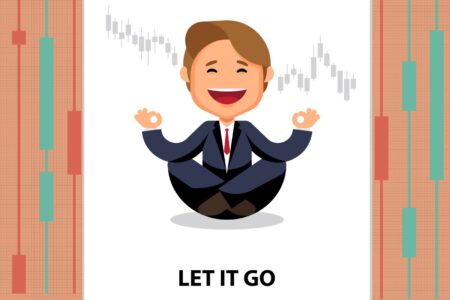Reminiscences of a Stock Operator
“Reminiscences of a Stock Operator” is a 1923 roman à clef that belongs to the top rated books on investing. Despite it being a fictionalized biography of one of the greatest speculators who ever lived, this book is an eye opener for everyone who wants to become a trader or anyone who is fascinated by trading.
The author of this timeless classic, Edwin Lefèvre, received training as a mining engineer before he became a journalist. He didn’t have any massive capital, but already at the age of 19 he tried to independently trade small amounts on the stock exchange. Years of observing the life and strategies of New York brokers resulted in the book titled “Wall Street Stories”. Edwin became popular overnight because as a writer he was much more successful than a trader.
Several magazine articles about the world’s first short trader, Jesse Livermore, eventually resulted in a fictional book, “Reminiscences of a Stock Operator”. (In the book, he is depicted as a key character under the name of Larry Livingston).
Jesse Livermore was indeed a unique speculator who, at the age of 15, was already trading using borrowed funds of the stock exchange in the amount of 100/1 sticking to his own strategies. Thus, in 10 years he earned $500,000. (let’s clarify something here: the events happening in the book took place between 1890-1935, and back then, half a million dollars was a huge fortune). Livermore made his money by day trading during the stock market crashes of World War I and the Great Depression. For this he received the nickname of “The Great Bear of Wall Street”.
The main value of the book is a detailed description of the psychology of a successful trader. After reading it, you will see a lot of similarity with modern times, as if it wasn’t written 100 years ago. Greed, fear, and overreliance on advisors will kill you faster than a few losing trades.
You will learn that trading is a game of singles against the crowd. The crowd will lose if you trust your gut and don’t succumb to the crowd instinct.
What helped Livermore/Livingston get rich? First of all, he was cautious and thought through the risks. In a situation where he had to make a choice between a very risky trade with a large income and a safe trade with a small income, he would go for the second option. This choice would give him a stable position, room for maneuver and minimal losses. While his fellow traders were earning and then dumping huge sums, he had more of a “Many a little makes a muckle” approach.
The thing is, he did not follow cautious tactics at first. It was preceded by his complete collapse as a trader, when Livermore lost his entire deposit on trading with leverage. That’s when he would come to the following understanding:
“There is nothing like losing all you have in the world for teaching you what not to do. And when you know what not to do in order not to lose money, you begin to learn what to do in order to win”.
As a result, he comes to the conclusion that the main thing in his work is to predict possible losses and maintain stability; the market lives according to laws that are far from human and resembles an uncontrollable element. Price movement cannot be explained by causal relationships – everything is much more complicated. The only way out is to react quickly to these movements, or the market will crush you.
Buy this timeless bestseller here
“Reminiscences of a Stock Operator” best quotes
“ A man must believe in himself and his judgement, if he expects to make a living at this game”.
“The speculator’s chief enemies are always born from within. It is inseparable from human nature to hope and to fear. In speculation when the market goes against you hope that every day will be the last day—and you lose more than you should have had, had you not listened to hope—the same ally that is so potent a success-bringer to empire builders and pioneers, big and little. And when the market goes your way you become fearful that the next day will take away your profit, and you get out—too soon. Fear keeps you from making as much money as you ought to. The successful trader has to fight these two deep-seated instincts…Instead of hoping he must fear; instead of fearing he must hope.
“No man can always have adequate reasons for buying or selling stocks daily or sufficient knowledge to make his play an intelligent play”.
“There is the plain fool, who does the wrong thing at all times everywhere, but there is the Wall Street fool, who thinks he must trade all the time. No man can always have adequate reasons for buying or selling stocks daily”.
 Join our Linkedin channel to stay updated on the latest news!
Subscribe
Join our Linkedin channel to stay updated on the latest news!
Subscribe






